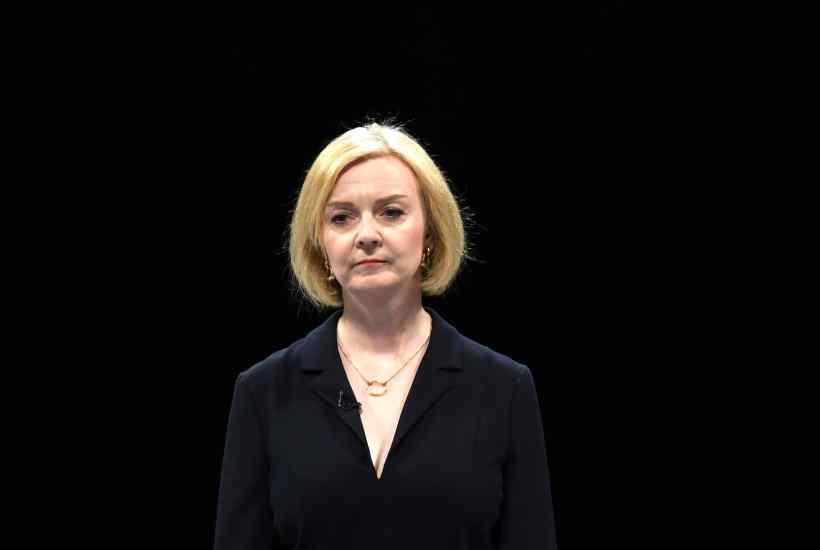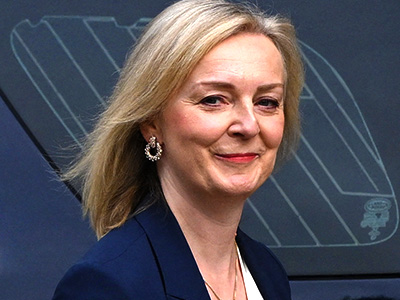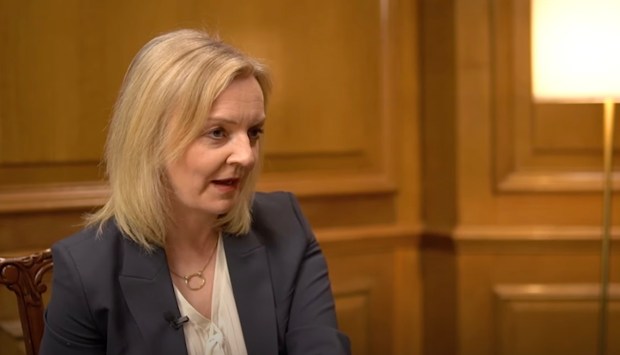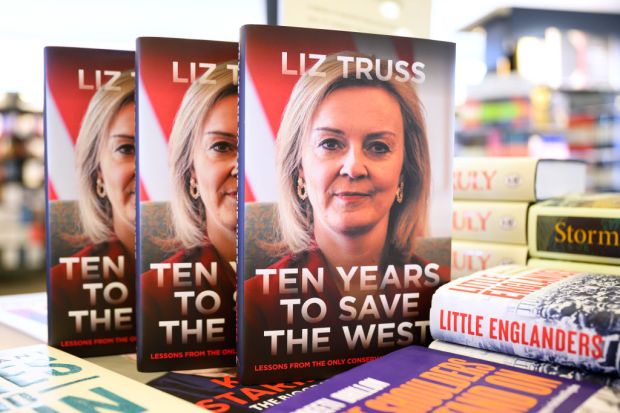In his book The Five Basic Plots, Christopher Booker outlines five stages of tragedy: anticipation, dream, frustration, nightmare, destruction. So far Liz Truss has completed four of these. Tory party members, like Macbeth’s witches, hailed Liz Truss as ruler of a new low-tax, pro-growth era. She rose to the top, like Macbeth, in a triumph of ambition over ability, but took his advice with her mini-Budget (‘if it were done when ‘tis done, then ‘twere well it were done quickly’) a little too literally. Frustrated by the fates of the markets, Truss is now surely in her nightmare stage: haunted, hunted, hiding (although apparently not under a desk).
Yet I feel no smug satisfaction, no schadenfreude in watching Truss self-implode so spectacularly, and I write this as someone directly affected by her calamitous choices (my fixed-rate mortgage comes to an end in 2023). The truth is that Truss looks not just beleaguered but broken, borderline unwell, and the bizarreness of her behaviour makes it difficult to want to join in with this public pillory.
The last week has been a parade of ritual humiliation: her panicked, eight-minute press conference; her sacking of kamikaze Kwarteng; the U-turns on almost every element of her mini-Budget; the poetic justice that Truss is now a puppet Prime Minister to Jeremy Hunt, the exact type of Tory she once scoffed was a slave to ‘Treasury orthodoxy’.
Yet her enfeebled demeanour during an urgent question on Monday wasn’t just embarrassing but disturbing. She looked like a chastened child being told off by the headmaster, and it makes you wonder why on earth she was put through it. Her silence, her spaced-out appearance, her incessant blinking – people may joke that Therese Coffey must have given out her meds again, but these are all reminders that Truss is not only wildly out of her depth but also clearly under enormous, overwhelming stress. Combined with reports that she is ‘depressed’ and isolating herself and the photograph of her clearly upset in her car, it’s hard not to view this as a personal as well as political unravelling.
It’s worth remembering that Truss is not solely responsible for our current destination; last night James Heappney told Times Radio that when the cabinet was presented with the mini-budget, no one ‘said it was a bad idea’. As undemocratic as our system may feel right now, the reality is that Liz Truss is just one person, and members knew exactly who they were voting for.
Of course, people have a right to be angry. Her critics feel vindicated; her followers feel betrayed. More sympathetic voters may point out that Truss inherited the worst in-tray possible: the Covid hangover; Brexit; the war in Ukraine; the energy crisis; an overwhelmed NHS with record ambulance and A&E waiting times; economic stagnation and sluggish productivity; rising interest rates in America putting even more pressure on inflation here. Others may say that this is the culmination of 12 long years of Tory rule: this is an ensemble performance.
But what of ‘tomorrow, and tomorrow, and tomorrow?’ Liz Truss should be a ‘poor player / That struts and frets [her] hour upon the stage, / And then is heard no more’, but instead appears to be being held hostage in order to not worsen any potential instability in the markets. Yet Liz Truss is too visibly shaken to project stability and reassurance; her interview with the BBC’s Chris Mason was simply painful to watch and her discomfort was evident. It’s clear that there is no hope for her redemption, and it seems almost cruel to allow these delusions to continue; surely someone should put her out of her misery?
As much as the Tories may want to drag out their final act, without a denouement there can be no catharsis. Instead, we continue to watch our fatally flawed tragic heroine suffer on the political stage as we drag towards our destined conclusion. Macbeth famously says that he has ‘stepped [in blood] so far that, should [he] wade no more, / Returning were as tedious as [going] over.’ The Tories may not like their options, but they must not make the same mistake as Macbeth in thinking that they must stay the course, no matter the cost.
Got something to add? Join the discussion and comment below.
Get 10 issues for just $10
Subscribe to The Spectator Australia today for the next 10 magazine issues, plus full online access, for just $10.




















Comments
Don't miss out
Join the conversation with other Spectator Australia readers. Subscribe to leave a comment.
SUBSCRIBEAlready a subscriber? Log in